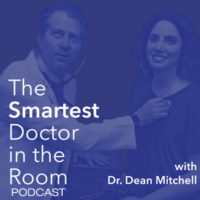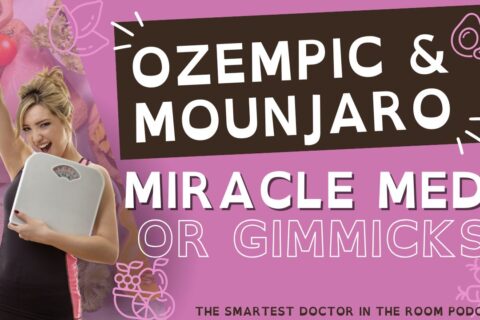Candida Diagnosis: From Your Mouth to your Gut

[updated April 2019]
At Mitchell Medical Group, we are seeing patients every week showing clear manifestations of yeast overgrowth or Candidiasis. It’s not really that shocking considering that Americans are exposed to contributing factors of candida overgrowth regularly such as antibiotics, steroids, birth control pills, poor diet, alcohol overuse, and stress. All of these contributing directly or indirectly to destroying our good bacteria in our gastrointestinal tract allowing the yeast to take over.
Early in my career working in the hospital in the mid-1980s, I would see patients infected with the HIV virus that was immune deficient present with signs of Candida: a white coating on their tongue being the most common and easily visualized. Today, however, I rarely see an HIV patient, but I am seeing immune competent patients showing signs of Candida.
Why are these patients showing yeast overgrowth?
The main reason in my estimation is the overuse of antibiotics. In last week’s New England Journal of Medicine( April 20, 2017), the Images section had a picture of a 72-year-old man who had been on antibiotics for several weeks for a bronchial infection, who developed difficulty swallowing. He was evaluated by endoscopy and was found to have multiple, ring-like white plaques on his esophagus lining. He required treatment with antifungal medication to reverse the infection. The reason yeast or Candida develops in a prior healthy patient is if there is an imbalance of good and bad bacteria.
The same week this article came out I saw a thirty-year-old male with chronic Candida on his tongue, and a 70-year-old woman with Candida on her tongue as well. What did they have in common? Not much. He was a generally healthy guy, but he had a dental infection that required a few weeks of antibiotics. The elderly woman was in excellent health, but sometimes an aging immune system can be vulnerable to yeast and needs immune support.

Candida in the stomach or small intestine is associated with many of the symptoms of Irritable Bowel Syndrome: bloating, gas, abdominal pain, and constipation. The Candida or yeast can have “a party” in your stomach and intestinal system if you overdo the sugar, wheat and of course alcohol.
If the yeast builds up excessively, it can cause “Leaky Gut”, where proteins from the yeast exit the bowel and take harbor in other organs of the body: the vaginal tissue, the sinuses, the liver, the skin- and even the brain. The reason so many specialists miss the Candida diagnosis is that they are just looking at the problem as a local problem. The gynecologist is just looking at the female genitals, the ENT is just looking at the sinuses and the dermatologist just the skin.
To diagnose Candida properly you need to look at the patient holistically from his/her diet to medication usage and symptomology.

At Mitchell Medical Group in NYC, we recognize the different presentations of Candida and do specific testing to confirm our diagnosis. Our treatment protocols have also been very successful at keeping our patients healthy and immune strong. Please read our unique protocol and the 3 step process we use to treat our patients.
– Dr. Dean Mitchell, M.D.
Mitchell Medical Group, NYC
About the Author – Dr. Dean Mitchell, M.D.
Dr. Dean Mitchell, M.D. is a Board Certified Allergist and Immunologist based out of NYC. He graduated from the Sackler School of Medicine and completed training at the Robert Cooke Allergy Institute in New York City. He is also a Clinical Assistant Professor at Touro College of Osteopathic Medicine, a fellow of the American Academy of Allergy, Asthma, and Immunology, and the author of Dr. Dean Mitchell’s Allergy and Asthma Solution: The Ultimate Program for Reversing Your Symptoms One Drop at a Time. Dr. Dean Mitchell, M.D. has also been featured in The New York Times, The Huffington Post, Fitness Magazine, Dr. Oz and News NY 1. Dr. Mitchell also hosts the podcast The Smartest Doctor in the Room – a combination of a lively, personal and in-depth interview with top healthcare specialists.


